
At the Sundance Film Festival, one title seemed to cross everyone’s lips: Leaving Neverland.
The two-part film sent viewers running from the theatre in panic, to the point that HBO had to station abuse counselors in the cinema lobby.
The reason: the film relives the accounts of James Safechuck and Wade Robson, two now-grown men who detail years of sexual abuse by pop legend Michael Jackson. Though Safechuck and Robson had previously denied that Jackson abused them, both now detail sexual abuse that began at ages 10 and 7, respectively. The film also uncovers explosive evidence and testimony that would seem to corroborate their accounts.
Director Dan Reed lit the fuse. Between his numerous talk show, radio and print promotions for the film, Reed took a few minutes to talk about the film, the controversies it has fanned, and to defend it against its detractors–including the Jackson estate.
How about we take this to the next level?
Our newsletter is like a refreshing cocktail (or mocktail) of LGBTQ+ entertainment and pop culture, served up with a side of eye-candy.
Leaving Neverland airs on HBO March 4, and streams on HBO Go beginning March 4 & 5.
This film is already the talk of the nation and it hasn’t even premiered yet. How are you coping?
I’m kind of slightly shell-shocked. I’m doing a lot of interviews and it’s just sort of wiped out everything else in my life at the moment. I’m fascinated by the way this is playing out in the press, and the warmth with which the film has been received. I think, pretty much, 100% of reviewers—I’m talking about the press now, the public hasn’t seen it yet—the press has found the guys’ stories completely credible. It’s very, very satisfying.
What was your opinion of Jackson before you began?
Honestly, I didn’t have much of a view. I was sort of in a haze about it all. Like everyone else, I thought he was a strange man, obviously. I thought it was kind of weird that he’d been accused so many times of child sexual abuse. But you know, I didn’t have a TV when I was growing up. I didn’t listen to pop music much either. I am a bit of an alien when it comes to popular culture. But it also gives me an unusual point of view. So I came into [the film] as a complete agnostic. I had no preconceptions.
Both James and Wade have claimed in the past that nothing happened. Wade even testified under oath in 2005. James gave a deposition. What would you say to critics who question the credibility of your witnesses?
No one who has seen the film, to my knowledge, has questioned their credibility. So there is a big divide between people who have watched the film and the people who haven’t watched the film. And on the side of the people who haven’t watched the film, I include the Jackson family and Jackson estate. Now, it’s completely normal, natural and to be expected that people will ask this question about Wade and James lying.

So if they lied then, why should we believe them now?
The answer is that’s what the film’s about. The answer is that neither Wade nor James is a compulsive liar, and there is a story behind the reason why Wade defended Michael Jackson so successfully in 2005 and probably was a major element in Jackson’s acquittal. It’s a story that makes sense when you tell it in sufficient detail. It’s a story that makes sense when you understand how child sexual abuse leaves its mark on an individual. The fact is Wade didn’t randomly change his mind about this. He was in love with Michael. He fell in love with Michael as a seven-year-old boy. It’s a difficult thing for people to accept, that he had a sexual relationship with Michael. And Michael seduced him, and gave him an incredibly focused and attentive and loving introduction to sexual activity, except that it was rape. It was a criminal act; no meaningful consent could happen.
And something that caused him a great deal of confusion.
That connection and that deep attachment lasted well into Wade’s mid-20s. When he took the stand, he was defending his friend and mentor and father figure and the man who had been his sexual partner. He was never going to allow him to go to jail. So there are very concrete reasons why Wade didn’t tell the truth in that trial. The key to it all: He didn’t change his mind. He realized when he had his own son when he saw this vulnerable child in his arms, he realized having sex with a child is wrong. He imagined Michael raping [Wade’s son]. Then he switched and thought of himself—little Wade—in a similar position. And he felt nothing. That’s when he realized there was something wrong, and went to a therapist. That’s the breach in the dike, the breach in the secrecy that Michael set up. He swore Wade to secrecy, he swore James to secrecy. So that was the first step in removing himself from the lie he had told his whole life, including under oath. James and Wade don’t deny in the film that they lied. James was a child when he lied in the deposition. The thing we’re really talking about here is Wade testimony in the trial. The film pivots around that moment and the subsequent awakening that he would later experience. I’m not surprised that people ask the question. It’s a very obvious one to ask.
Did you try to include the Jackson family at all?
No, why would I do that?
Well, there’s some criticism that the film is one-sided. It doesn’t offer a rebuttal.
The Jackson family wasn’t part of the sexual abuse. Neither Wade nor James makes any allegations against any other members of the family. This is part of—the estate has kind of poisoned the well, and poisoned minds against Wade and James and anyone who stands up and makes allegations about Jackson. These questions come up again and again in interviews, and it’s kind of frustrating because they don’t really make sense. The Jackson family and the Jackson estate have a vested interest in suppressing this story. We all know what they say and what they think; they’ve had a platform for decades.
Yes, the family has denied these allegations for years.
They’ve been shouting about Michael’s innocence and how it’s all about money and all this nonsense for years. The story we haven’t heard is the story of the victims. So, journalistically speaking, we make no allegations against the family, so there’s no need for a response. They’ve got nothing to say. Looking at what the Jackson bubble seems to say this week, their line seems to be “I knew my brother. He was a nice guy who would never have done anything nasty to a child.” I don’t know what that would have added to my film. That’s not even a rebuttal that anyone can take seriously. What I did do, and what I think was important was to put Jackson’s denial in the film. He’s the object of allegations and he needed to be in the film to say he’s innocent. That was really important, and to get his lawyers in there arguing their perspective, and to hear them trashing Wade, and the fans trashing Wade to give it a bit of a sense of what the Jackson camp believed. We did that pretty thoroughly. I didn’t want to make a he said-he said. On one hand there are children saying they’ve been raped, and on the other hand people are saying their alleged rapist was a jolly nice guy. Now, the other question I get is why didn’t I speak to Macaulay Culkin?

Right, which, in the film, you do say you invited him to participate and he declined.
Macaulay has been very clear in saying he was never abused, and I have to believe him because that’s what he said. But he also said he wasn’t present when he was in the bedroom when Michael was having sex with these other boys, and his friendship with Jackson really flourished at a slightly later time than Wade and James. I would also say that, if you’re making a documentary about Ted Bundy and you include people he didn’t murder, what good is that?
[Laughter]
That’s an excellent point.
Would it prove anything?
I suppose it wouldn’t. Since this is a story of the survivors then, my other question is did you reach out to Jordan Chandler or Gavin Arvizo? [Jackson’s two accusers in 1993 and 2005.]
I did. I wrote a long letter to Gavin and I want to make sure that he watches the movie. I’d love to talk to him; he chose not to reply and I certainly wasn’t going to compel him to. Jordie disappeared; he keeps himself to himself and I wasn’t going to hunt him down. I did try to find a way to contact him, but in the end, I found myself drawn deeper and deeper into the Robson & Safechuck families, and realized that Jackson groomed their whole families. This isn’t just a story about a kid, it’s a story about all the relationships the little boy had—with his mom, with his dad, sisters, brothers and later on, their wives. When you watch the four hours, and I’m sure you felt this too, it’s almost inconceivable that all these people could be lying and maintain such an amazing, cohesive and detailed story.
The family grooming you mention aligns perfectly with other stories of pedophilia where the pedophile will groom a whole family just to get at a child.
Yeah.
One of the vilest slanders is the idea that gay men are more likely to pedophiles, or that pedophilia and homosexuality are somehow related. Was that a misconception that ever came up in your discussions?
I know what I know about Michael only through Wade and James’ eyes, and through their families and witness statements, etc. It’s my understanding that Michael did not see himself as gay at all. He did not have sexual relationships with grown men, or men past the age of puberty. He liked prepubescent boys, and he did have sex with Wade and James up to about the age of 14. Beyond that, I haven’t heard of a victim older than 14.
Related: This bizarre Michael Jackson conspiracy theory turned out to be 100% true
It also bears mentioning that both James and Wade identify as straight.
They do, yeah.
Yet they talk about this sexual relationship with Jackson in such a way that they thought they had a loving, natural relationship. They say they were in love with Michael
It did create considerable confusion, I know. Weirdly, while James was in a sexual relationship with Michael, he developed a strong crush on Sheryl Crow, the singer. Michael was pissed off about this, and it caused jealousy. James had a crush on a schoolmate too, and Michael made them break up. So James and Wade both considered themselves to be heterosexual while at the same time having sex with Michael as children. They mentioned this on Oprah the other day [Reed, Robson & Safechuck had just taped a special with Oprah Winfrey prior to our interview] about how it made them question their sexuality as teenagers. As far as I know now, they’re straight guys with wives and kids. To my knowledge, neither Wade nor James have had a normal, gay relationship with an adult.

That’s an important distinction to draw. At first glance, this film would be a deviation from your usual subjects as a documentarian. You tend to focus on subjects like terrorism. Then again, the kind of molestation you chronicle in this film is its own kind of terrorism: haunting, omnipresent, manipulative. What draws you to this heavy subject?
Mhmm. I think what draws me to it is that it’s dark and complex. It involves the clash of many different truths and the clash of points of view. You know, it displays human behavior as complex and I think that’s what documentary is about. It’s about layers and complex accounts that are satisfying and that are great stories that address the complexity of human behavior. That’s why I’ve done films about terrorist attacks because they are so complex and multidimensional.
Sure.
The common denominator is that I always tell stories through intimate personal testimony. There are no experts or very few experts. I don’t tell a story through pundits. I tell them through a journey that someone experienced. I apply both techniques to this film as well.
You spent two years working on this film. When you’re working on a heavy subject like this, how do you cope every night?
I think pinot noir is the answer.
Jokes aside, I’ve been doing it for 30 years, so I probably have a compartment in my brain that is full of the most awful things. I’ve had first-hand experience early in my career of crime, and I’ve been very frightened a lot of the time. But you develop a thick skin. You also learn to have compassion while being confronted with the most disgusting things that anyone could tell you or show you or that happen right in front of you. I think you can’t look away because of people… I don’t want to sound trite, but in the richness of human experience, people behave in contradictory and complex ways.
That is very true.
For me, it’s all part of that richness of our condition. So there’s nothing that I reject. There’s nobody beyond the pale. So I find it easy to set my feelings aside when I need to and keep some lucidity. Ultimately, I’m serving my audience. I see myself as a mediator and interpreter of complex reality. So if I’m too shaken by what I’m seeing, I can’t have calm judgment. I can’t translate the messiness of experience into a clear story.
Sorry if that’s a jumbled answer, but it’s the sort of thing I don’t really like to consider.
I worry at some point in my life when I get off the carousel that it’s all going to hit me at once.
When that happens, go for the Pinot!
Exactly!
Leaving Neverland airs on HBO March 3 & 4, and streams on HBO Go beginning March 4 & 5.


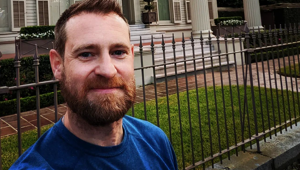
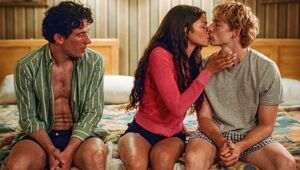

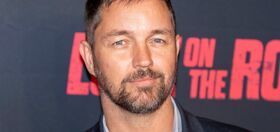
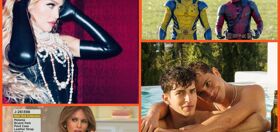


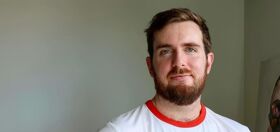
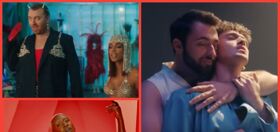
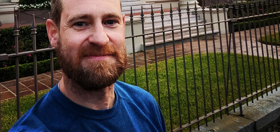

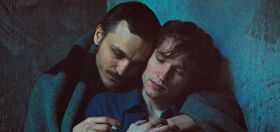
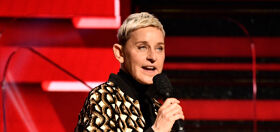
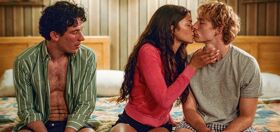
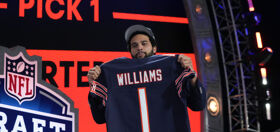

Chevelter
I just finished watching both parts of Leaving Neverland. It is an incredibly powerful, moving film. By the end of part 2 it is almost impossible not to believe the two accusers and understand their journey. That said, I really wish there was more corroborating evidence. I realize how difficult that can be to come by in a child molestation situation, but it really does boil down to “They say” this happened, without evidence. Still, as I say, they are INCREDIBLY believable and their story is also. They and their families would have to be Oscar-worthy performers to all by lying. Still, while Dan Reed is a very convincing filmmaker, so was Leni Riefenstahl. Can you tell I’m conflicted about this documentary. Still, it is MUST SEE.
@HarryB
Leaving Neverland is really sad story. SAD STORY. Jackson was really kind, i am absolutely sure that all rumors are really only rumors, not more.
Chrisk
@HarryB. I didn’t know that you were there. Maybe they should’ve featured an annoying spammer like yourself.
Chrisk
Started with Part 1. Really is a must see documentary. It’s not just another pedo story. The guys and their Moms really come off as very authentic. In spite of everything you can see the affection that they still have for him.
It’s so obvious that he groomed them and did it right behind everyone’s back. It’s so damn obvious and you wonder how but then you see how blinded everyone was to the fame and all the excuses that were given to him. I can totally understand. He was the King of Pop afterall.
Greg
@HarryB It’s not a rumor if the people who were involved are doing the talking. You can’t be absolutely sure of anything about what happened.
DCguy
I could never understand how the media continued to parrot out Jackson’s B.S. about how he acted like a child because he hadn’t had a childhood.
Literally EVERY SINGLE psychologist/psychiatrist will tell you that kids who have to grow up fast in environments where they don’t have a childhood are LESS childlike and more adult than other kids. The last thing those kids want is to do childish things later.
So who would want to make a world that would appeal to children, complete with amusement park rides and ice cream stands? A pedophile trying to attack kids like a spider.
Yet media just kept repeating Jackson’s line and never questioned it, pathetic.
Rock-N-RollHS
Folks, we all knew about MJ’s arrested sexuality. In MJ’s mind, he was a child, which he sort of was in many ways.
But guess what, he was a genius. I will NEVER stop listening to him. I don’t care if he had shot people dead on 5th Avenue in broad daylight–oh, wait, that’s our current President’s line. . .
MISTERJETT
i don’t even want to see it. Michael has been dead for ten years. whatever happened or didn’t happen is now between him and God. it doesn’t involve us at all.
Greg
When all of this went down back in the day and Jackson was in trouble, my friend Mike and I had a discussion and we felt that it was true. We figured out what Michael was doing. From his demeanor, we could tell that he wasn’t a lady killer. That “reliving his childhood” excuse was b.s. Especially since seeing that Michael was part of the Studio 54 scene. Like he was going to be an adult hanging out at Studio 54, then revert to being an innocent child. We didn’t buy it. For somebody saying that he loved children, we noticed he never hung out with girls. Just boys. I don’t think we ever thought that Michael would be licking their anuses, but we surmised that Michael liked to get the boy’s first loads. Then he would cast them aside once they got too old and Michael got what he wanted.
Karrnal
The fans say Michael is innocent because they love his music. But no one has ever said you can’t be a fine musician and a pedophile at the same time.
Chrisk
That’s how I feel about it. I love his music but no doubt in my mind that he’s a pedophile. For those fans that just give him a pass they remind me of the Christians who just pick and choose what they want to believe out of the Bible.
OzJosh
I’m perfectly willing to accept that these victims are now telling the truth, even though they lied before. But let’s not get too carried away in excusing their past actions. Yes, it’s perfectly understandable that they saw things in a new light when they had their own children. But there were other children who had been abused and damaged – and whose welfare they totally ignored. However much they were in love with MJ, or under his spell, they can’t really be entirely excused for ignoring that he had abused other boys – who were not so sanguine about it – especially when they knew 100% that it was true.
Vince
Yeah that’s the thing that bothered me the most and why they should never profit off the MJ estate.
Godabed
I am a MJ fan, but I am also a survivor. And I have questions MJs behaviors but I also understand he lived an very unconventional life, and a f*ed childhood with abuse. That being said a lot of his victims I didn’t believe, because for this simple fact almost all of his alleged victims seems to want monetary payments, not jail time.
And as a Victim there is no amount of money I would take in this or any other world that would result in that person getting a pass. And both of these people especially Wade benefited heavily from MJ. When his career started falling off he then sues the estate for money the same with Safechuck. I have saw the interviews where the two stated they didn’t take money from the documentary, and that’s true they didn’t. But they filed lawsuits especially when Wade first came out with this story. He wanted money. Also he testified twice stating he wasn’t molested. So I don’t really find him credible. The other issue with this he of course would know details about MJ, he was around him a lot.
magicmike
Wade is a known liar. First of all his story has changed many times. Secondly, he has refused to take a lie detector test. Also, there’s no proof. It’s he said he said. Except what a coincidence, they come out with this story after Michael is dead and can’t defend himself. Wade begged the Michael estate for a job when they were doing the Las Vegas cirq show. When they went with someone else, he was pissed. He first filed a claim against the estate for money. He tried goijg to court to get money from them but he was also denied there. It’s weird how now that his dancing gigs have dried up he comes forward with this. Let us now also forget the kind of person he is. While working for *NSYNC he was friends with Justin. He then screwed his friends gf, Britney Spears. Wade has long been a pariah in the dance community. He’s all but unemployable now so he decides to come up with this story. It’s all a loud of BS.
Franklin
I want to believe all accusations from victims who come foward, but someting in the milk ain’t clean in this story. Maybe it’s the fact the Wade shopped a book deal around first before he went forward with a $1.2 billion lawsuit after nobody picked up the book for publishing. Maybe it’s the fact that during the lawsuit he was caught misrepresenting information more then once and changing his story. On the draft of the book he even wrote “these accusations will make me relevant again” and “it’s time to get mine”. Lastly, they both says that they did not accept money for the film, but the lawsuit against the estate is currently on appeal according to Rolling Stone, and the month the film premiered at Sundace, Wade put up a webpage soliciting donations for a non-profit organization in his name saying the money is to help in the healing of sex abuse victims. The lowest recommended donation is $250 dollars going all the way up to $1000.
Franklin
Another thing thing that is strange is that the law firm that is representing the two men is using the film on their webpage as a selling point to solicit clients. The webpage states that Manley, Stewart, Finaldi are the lawyers representing the survivors on the HBO documentary Leaving Neverland and that duriung their expereince representing abuse victims they’ve been able to get over $2 billion dollars in damages for their clients.
russdog
Not sure what to believe here. I do know that most pedophiles are compulsive and are limited by access and opportunity. MJ had fame, money, and resources which gave him unlimited access not just at Neverland, but globally. I’d think his victims would be numerous. Other than the court cases (which were dismissed, or debunked, or settled) and these two men, there haven’t been the swarms of adults worldwide who say MJ molested them as children. Unlike the Cosby case, there haven’t been dozens of people to come forward (as yet) with similar stories which would suggest a pattern of behavior over decades.
russdog
Wade Robson is problematic. Aside from his continued support of MJ and testifying on his behalf, he spoke at his funeral and wanted to be part of the Vegas show. After that expected job fell through, he realized he was abused. I’m not sure what to make of that. Had he been traumatized all that time throughout his life, or did the trauma start after MJ’s death? As for the other man, I don’t know much about him, but the whole faux wedding does sound bizarre. But why keep the ring, the symbol of childhood abuse? I wish the documentary would focus on people other than the two questionable men. I’d have an easier time wrapping my head around all of this if I could see a pattern of behavior rather than be hit with salacious details.
Vince
Besides Wade what has the other guy or Jesse looking to get from this? All I hear about is Wade who I agree is problematic.
I believe the family members. I have no doubt that they believe. However just like Jussie Smollett I can see how people could be deceived.
Vince
Whoops. Make that James.
CobraPowers
MJ was a total creep but I don’t buy it that he was a pedo and child abuser at all. He knew too much and threatened to go public, and his message was undoing much of the propaganda pushed by the dark Cabal in power, so they had to take him down with lies.
Vince
Thanks for that tinfoil hat theory. You should really get back on your meds though.
CobraPowers
@Vince just like people like you constantly throw fits about Hoax hate crimes? Have a seat, love. Perhaps go back to watching drag shows or whatever else your limited worldview allows you to entertain.